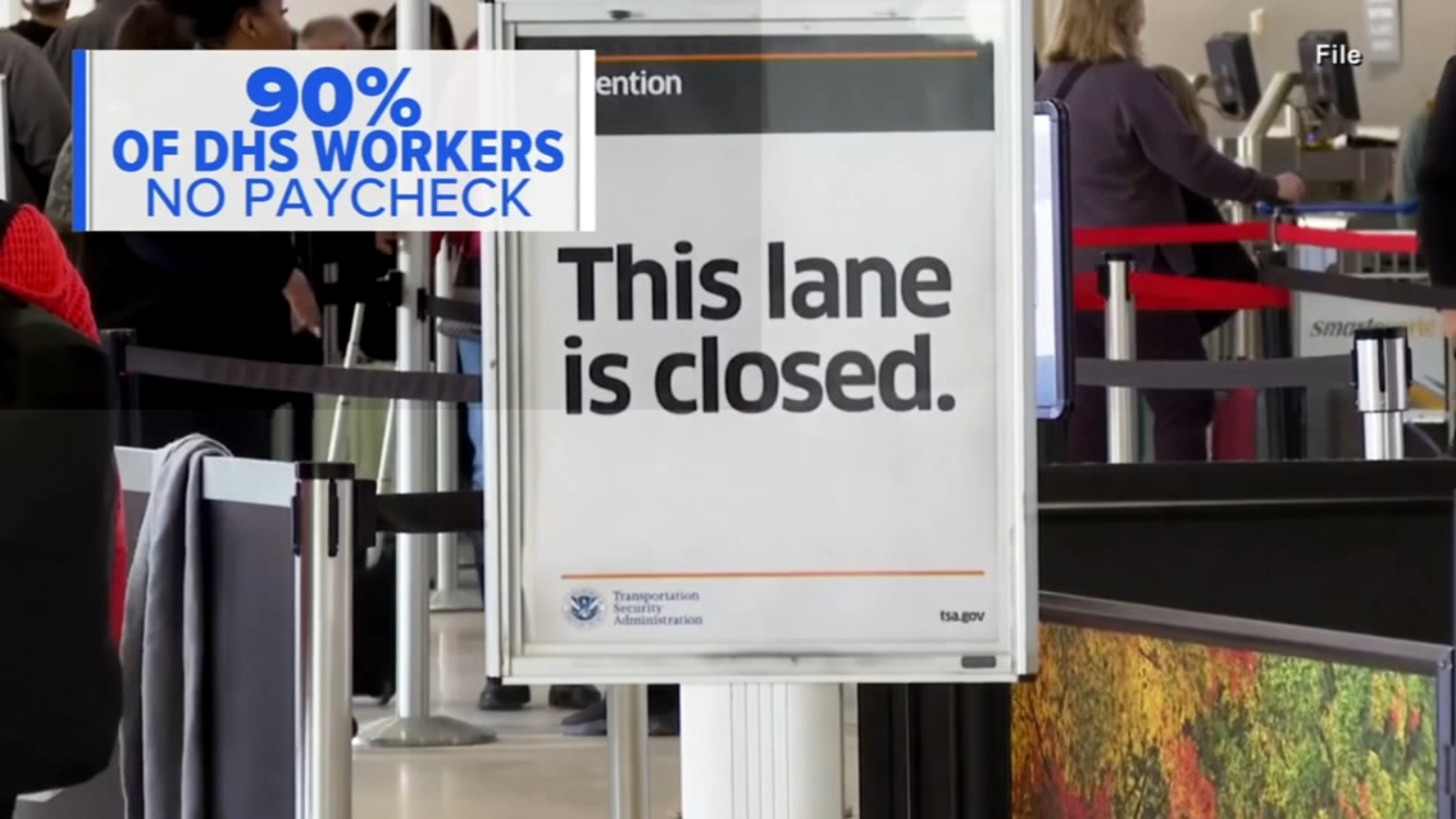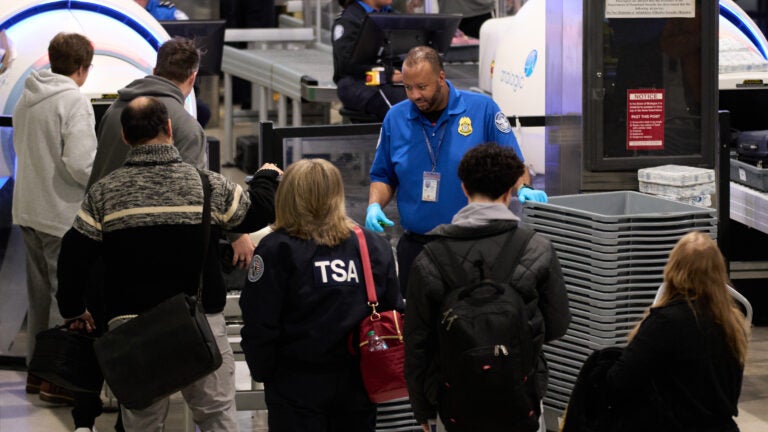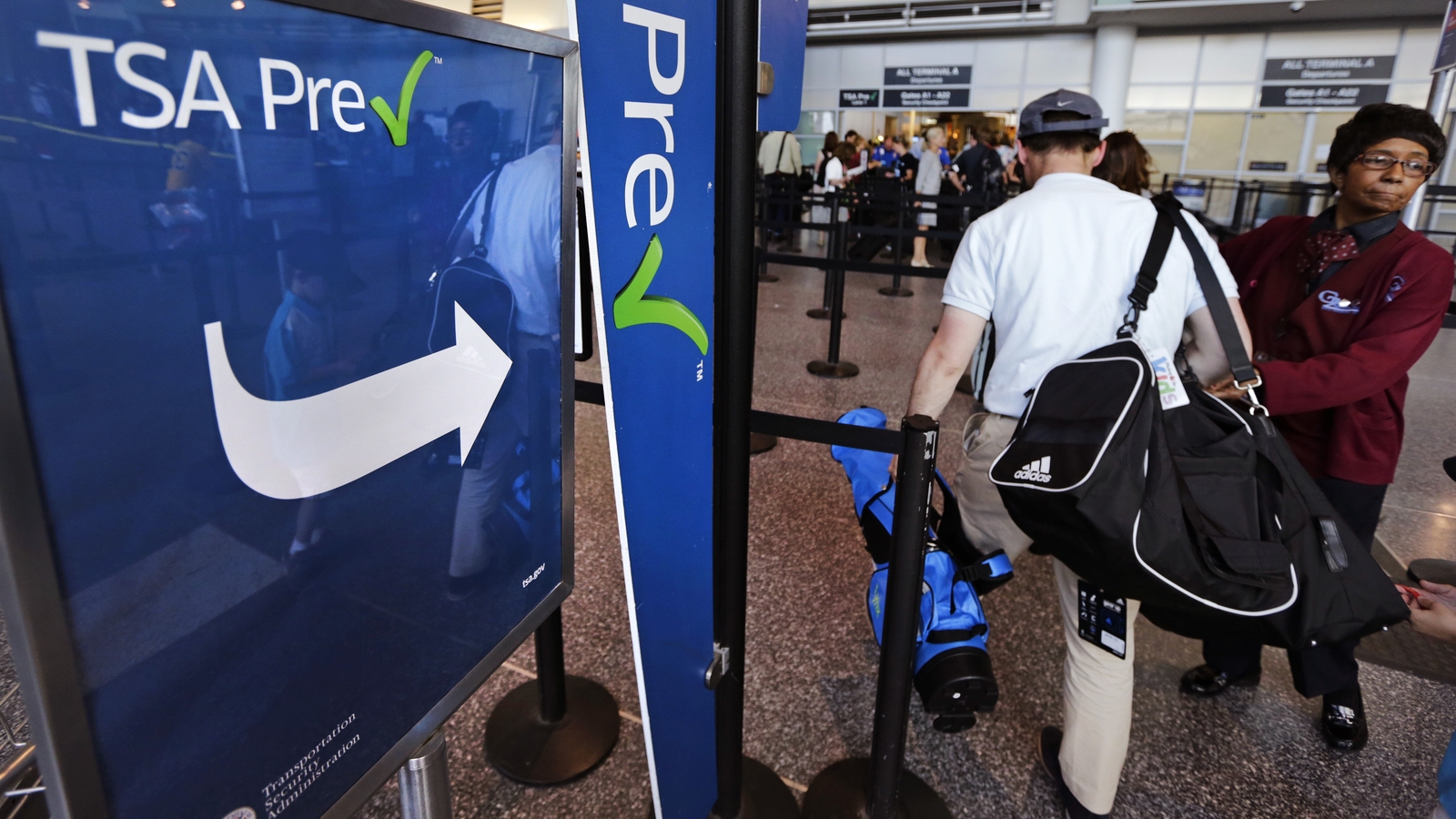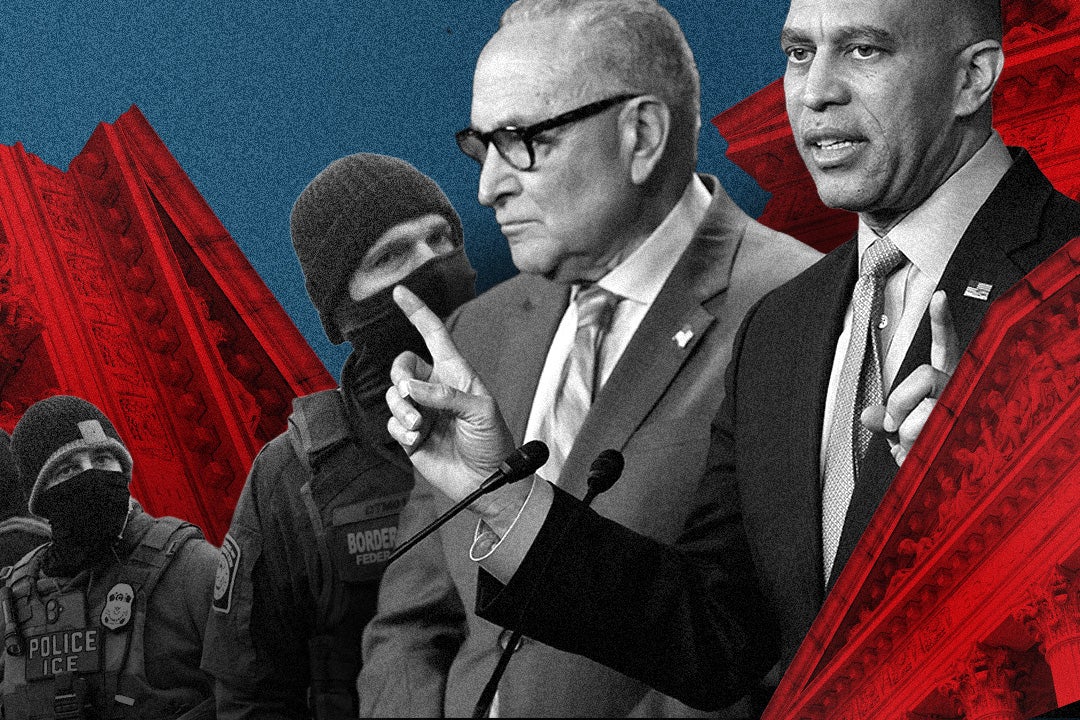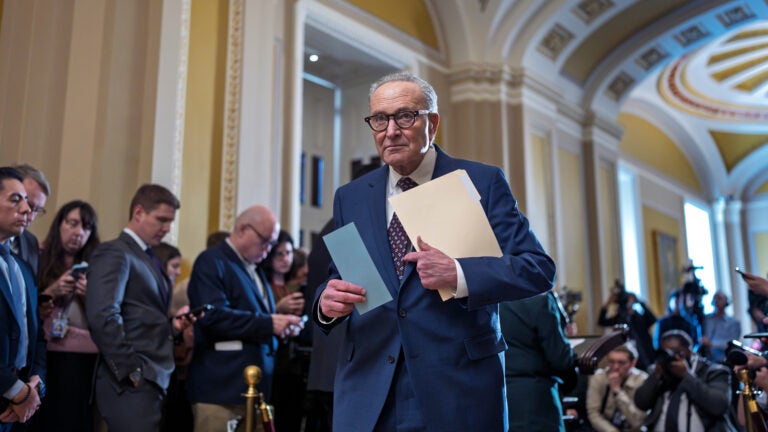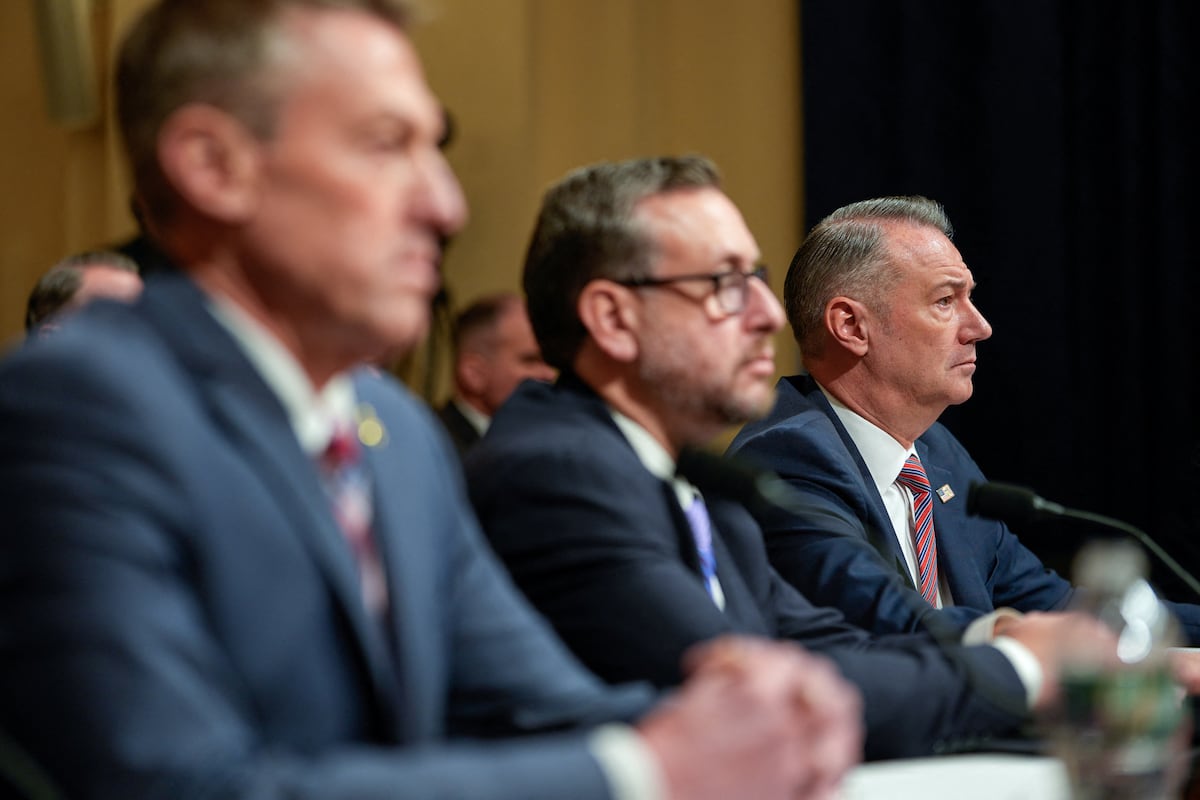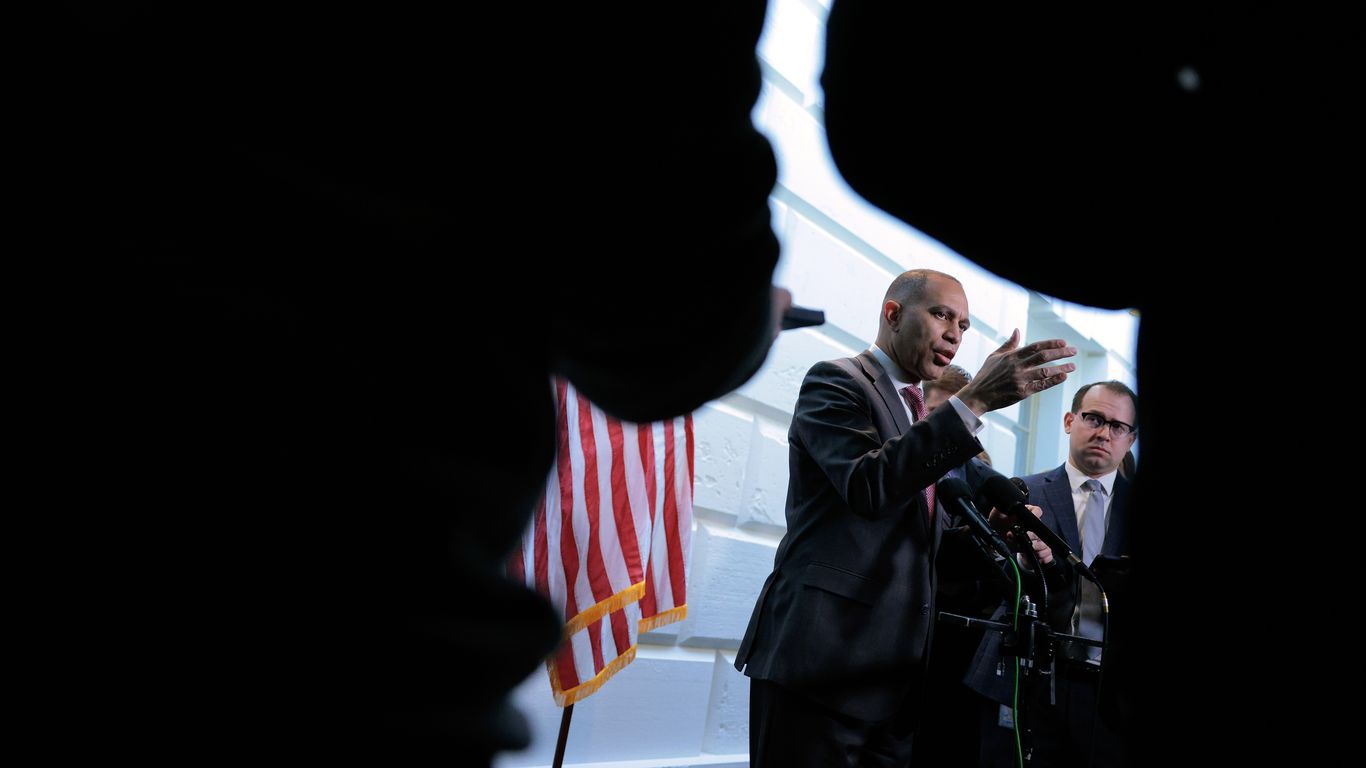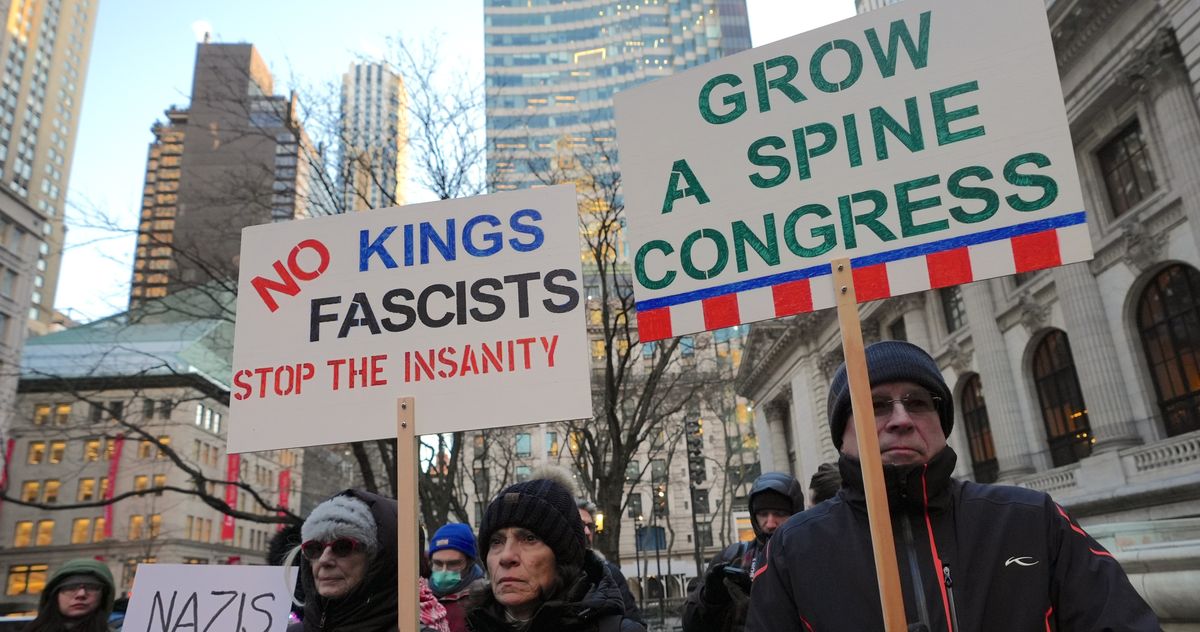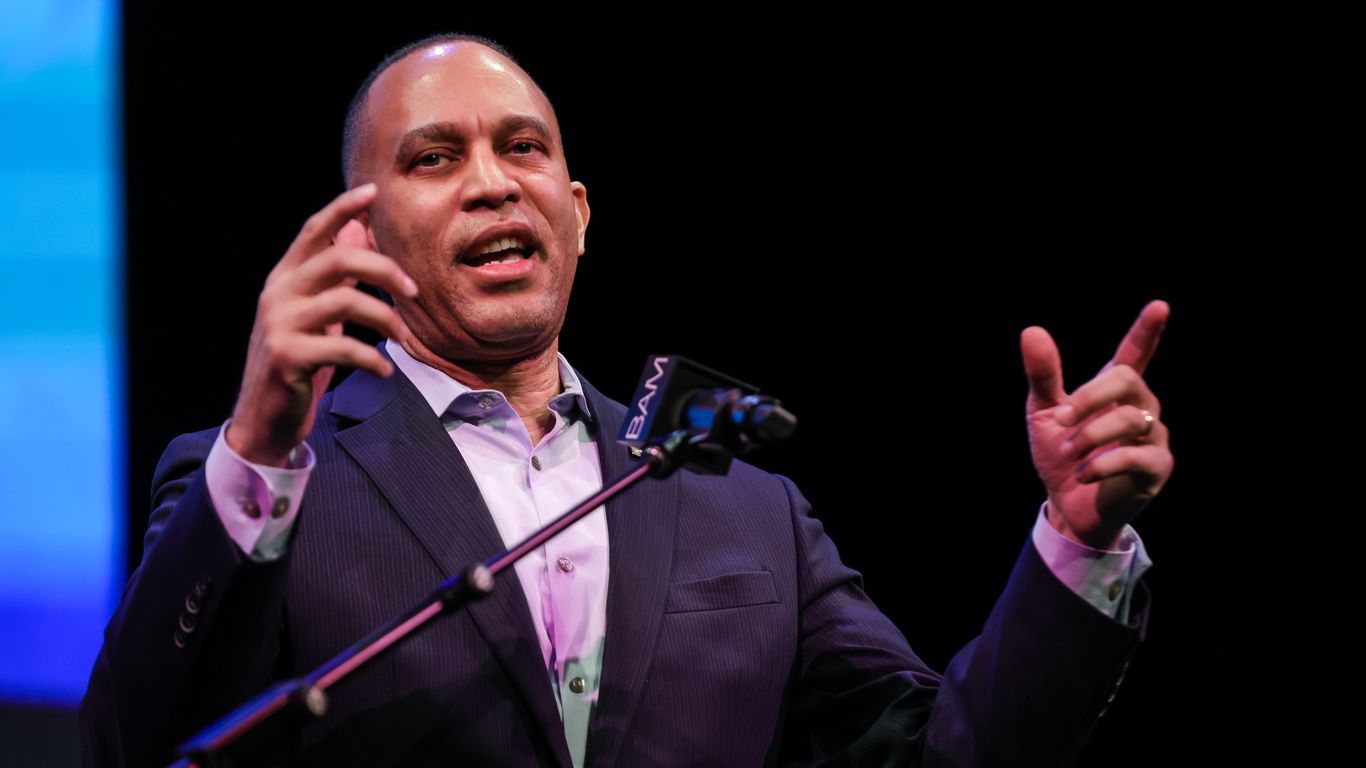#government shutdown
#government shutdown
[ follow ]
fromNextgov.com
2 weeks agoCISA to furlough most of its workforce under impending DHS shutdown
A likely partial government shutdown after Friday would impair the Cybersecurity and Infrastructure Security Agency's operations, leading to diminished capabilities in critical areas including cyber response, security assessments, stakeholder engagements, training exercises and special event planning, a top official said this week. CISA would furlough a majority of its workforce and just one-third would remain on the job under shutdown conditions, agency acting director Madhu Gottumukkala told House appropriators on Wednesday.
US politics
California
fromsfist.com
2 weeks agoDay Around the Bay: Pride Flag Re-Raised at Stonewall After Trump Administration Tore It Down
Multiple Northern California incidents: LaMalfa's aortic dissection death, a teen arrested in an Ocean Beach shooting, and a DHS partial shutdown affecting multiple agencies.
fromBusiness Insider
2 weeks agoJobs report updates: Dow, S&P futures hold steady ahead of employment data release
The monthly jobs report, a Friday tradition, is coming out this morning, five days later than originally scheduled due to the partial government shutdown. Economists expect the US added 65,000 jobs in January and unemployment remained at 4.4%. Investors are looking at the January jobs report to see if the job market has continued stabilizing following a difficult 2025. The US added only 584,000 jobs last year, the lowest employment growth since 2003, excluding recessions.
US news
fromFortune
3 weeks agoYour tax return this year might be late because of an understaffed IRS | Fortune
A fiscal centerpiece of President Donald Trump's agenda so far has been his pledge to lower taxes, and Americans are close to seeing healthy refunds from their 2026 filings. But actually seeing those returns show up on time might not be so straightforward, according to a recent federal watchdog report, largely due to another of Trump's signature policy stances. The Trump administration's purge of the federal bureaucracy last year did not spare the Internal Revenue Service, the agency responsible for collecting taxes and processing returns.
US politics
fromLondon Business News | Londonlovesbusiness.com
3 weeks agoDollar steady as data delays force caution - London Business News | Londonlovesbusiness.com
The US dollar traded in a consolidation phase on Wednesday, as a partial government shutdown continues to delay key economic releases and keeps investors in a wait-and-see mode. With job data postponed, markets are temporarily deprived of fresh evidence on the health of the US labour market, limiting directional moves in the market. Markets could react to new data, including the ISM Services PMI figures release later today.
US news
fromFlowingData
3 weeks agoJobs reports delayed, because government shutdown
Ben Casselman reporting for the New York Times: The Bureau of Labor Statistics will not release monthly jobs numbers on Friday as scheduled because of the partial government shutdown, said Emily Liddel, an associate commissioner for the bureau. The report, one of the most closely watched economic indicators each month, would have provided data on job growth, unemployment and wages in January, as well as annual revisions to employment estimates from 2024 and 2025.
US politics
Fundraising
fromMedCity News
3 weeks agoThe 4 Biotech Companies on Track to IPO this Week Despite the Government Shutdown - MedCity News
Several biotech companies can proceed with IPOs this week because the SEC filed notices of effectiveness before a partial government shutdown halted agency operations.
fromwww.theguardian.com
4 weeks agoSenate approves funding deal to rally behind deal struck by Trump and Democrats
The US Senate approved a major government funding package on Friday, after the killings of two US citizens by federal agents in Minneapolis upended spending talks and gave out-of-power rare leverage over Donald Trump's mass deportation campaign. In a 71-29 tally, the Senate overcame last-minute opposition from a handful of Republicans to rally behind a deal the president struck with Democrats, an unusual display of bipartisanship as tensions rise nationally over the presence of ICE in American cities.
US politics
fromJezebel
1 month agoDemocrats Finally Discover Leverage After 2 Americans Are Killed
If the second Trump administration has been a metaphorical firefight over whether the U.S. is a democracy or a theocracy run by Christian nationalists, Democrats didn't bring a hose-they brought a couple of water balloons to fuck around with. They've caved, insulted voters and each other, and given everyone brain-splitting migraines. And when Renee Nicole Good was shot and killed by an ICE agent on January 7, they still didn't say anything about blocking the budget bill that would give ICE another few billion.
US politics
US news
fromwww.npr.org
1 month agoIn the wake of Alex Pretti's death, Congress appears on track for a partial shutdown
Democratic opposition to DHS funding over immigration enforcement after two deadly shootings risks blocking the $1.3 trillion government funding package and prompting a partial shutdown.
US politics
fromAxios
1 month ago"Deputy speaker" and "so-called leader": How Mike Johnson and Hakeem Jeffries troll each other
Mutual partisan pressures and Trump's dominance over Republican leadership intensified polarization, causing the longest government shutdown and unprecedented partisan mid-cycle redistricting.
fromwww.aljazeera.com
1 month agoHow fragile is the US healthcare system?
Millions of Americans are facing a huge increase in the amount they have to pay for health insurance. A dispute about government subsides for healthcare was one of the major issues that led to a 43-day shutdown of the US government last year the longest in history. But even when the shutdown ended, Republicans and Democrats failed to agree on and extension of the the subsidies.
US politics
US politics
fromWIRED
1 month agoFears Mount That US Federal Cybersecurity Is Stagnating-or Worse
The government shutdown worsened federal cybersecurity risks by creating monitoring blind spots, disrupting contractor relationships, and slowing contracts and hiring, increasing vulnerability to major breaches.
US politics
fromwww.mediaite.com
1 month agoVery Painful for the Republican Party': Frank Luntz Issues Grave Warning to GOP Over Healthcare Battle
Republicans risk significant electoral losses in 2026 if Congress fails to reach a healthcare deal and voters blame them for rising healthcare costs and shutdowns.
fromwww.mediaite.com
2 months agoCongress Sets Records in 2025 for Longest Shutdown, Fewest Bills, Retirements
A contributing factor to this lack of productivity was President Donald Trump's increasing use of executive orders, often controversial and subject to multiple court challenges. So far in his second term, Trump has signed 224 executive orders, compared to the 52 he signed in 2017 and more than he did during his entire first term. President Joe Biden signed 76 in 2021, his first year in office.
US politics
fromBusiness Insider
2 months agoHere's how much the economy grew in the third quarter of 2025
US real gross domestic product rose at an annualized rate of 4.3% in the third quarter, exceeding the 3.3% expected and more than the 3.8% growth in the second quarter. "The increase in real GDP in the third quarter reflected increases in consumer spending, exports, and government spending that were partly offset by a decrease in investment," the Bureau of Economic Analysis said.
US news
fromwww.npr.org
2 months ago'Congress is in a coma.' Former lawmakers sound alarm on health of the House
"We've done studies showing the reason a lot of people are leaving is because it's not functional, because of death threats, because they're not getting anything done," she said in an interview. "The polarization is just dramatically different from even from the 'good old days' when you had the Clinton impeachment, but you got things like welfare and tax reform done," said Comstock, who was a congressional staffer in the 90s and served in Congress from 2015 to 2019.
US news
[ Load more ]


